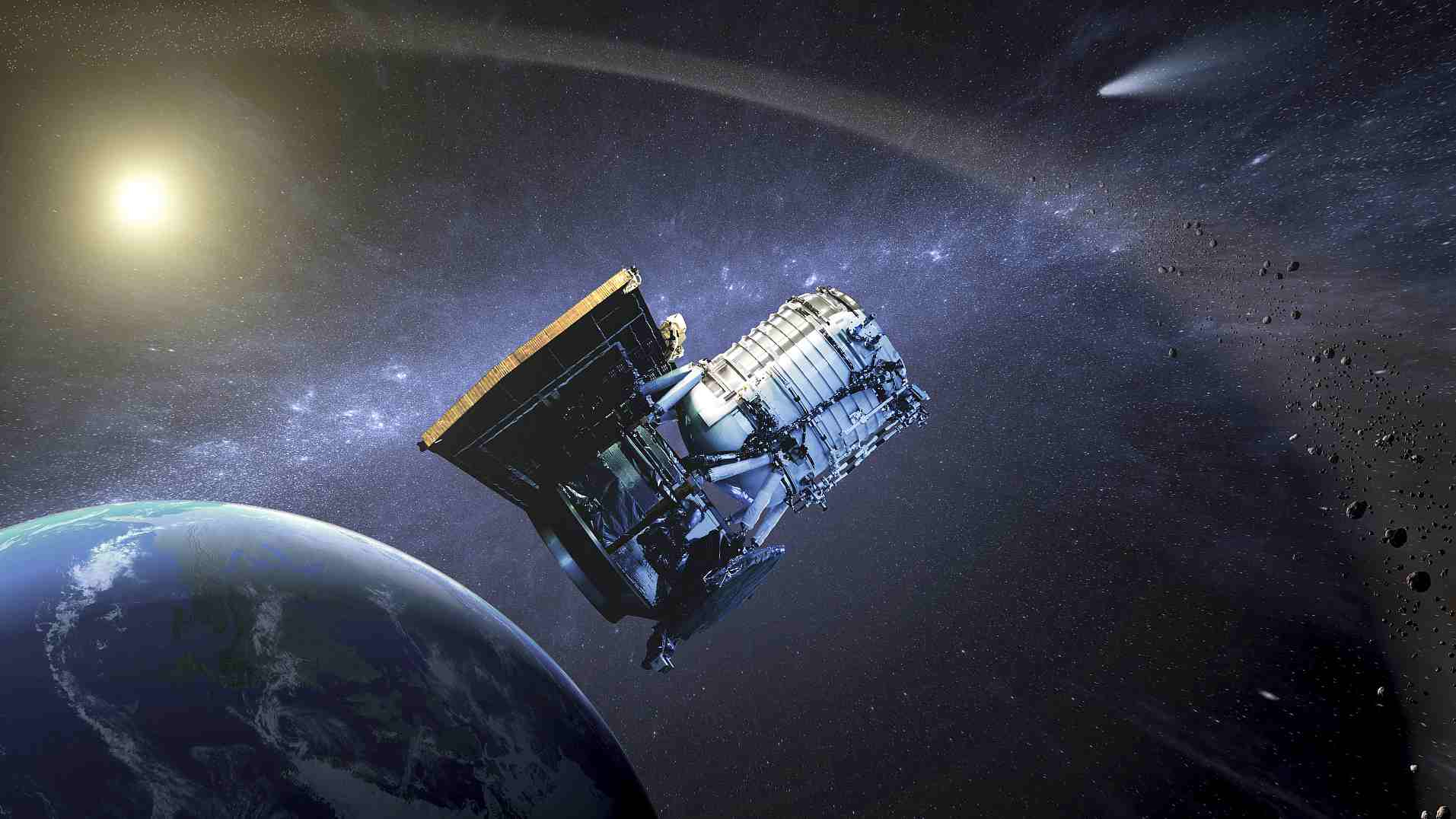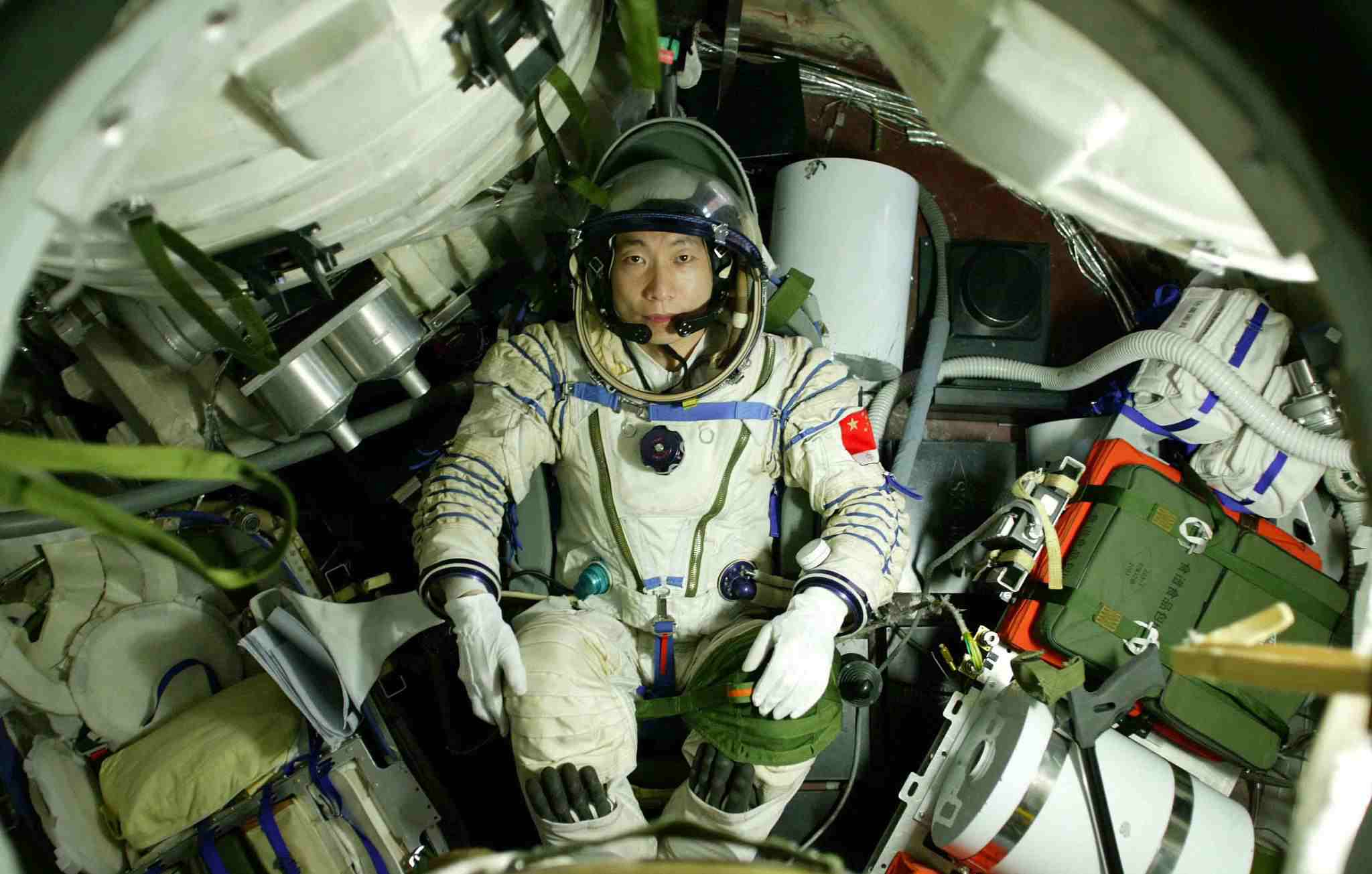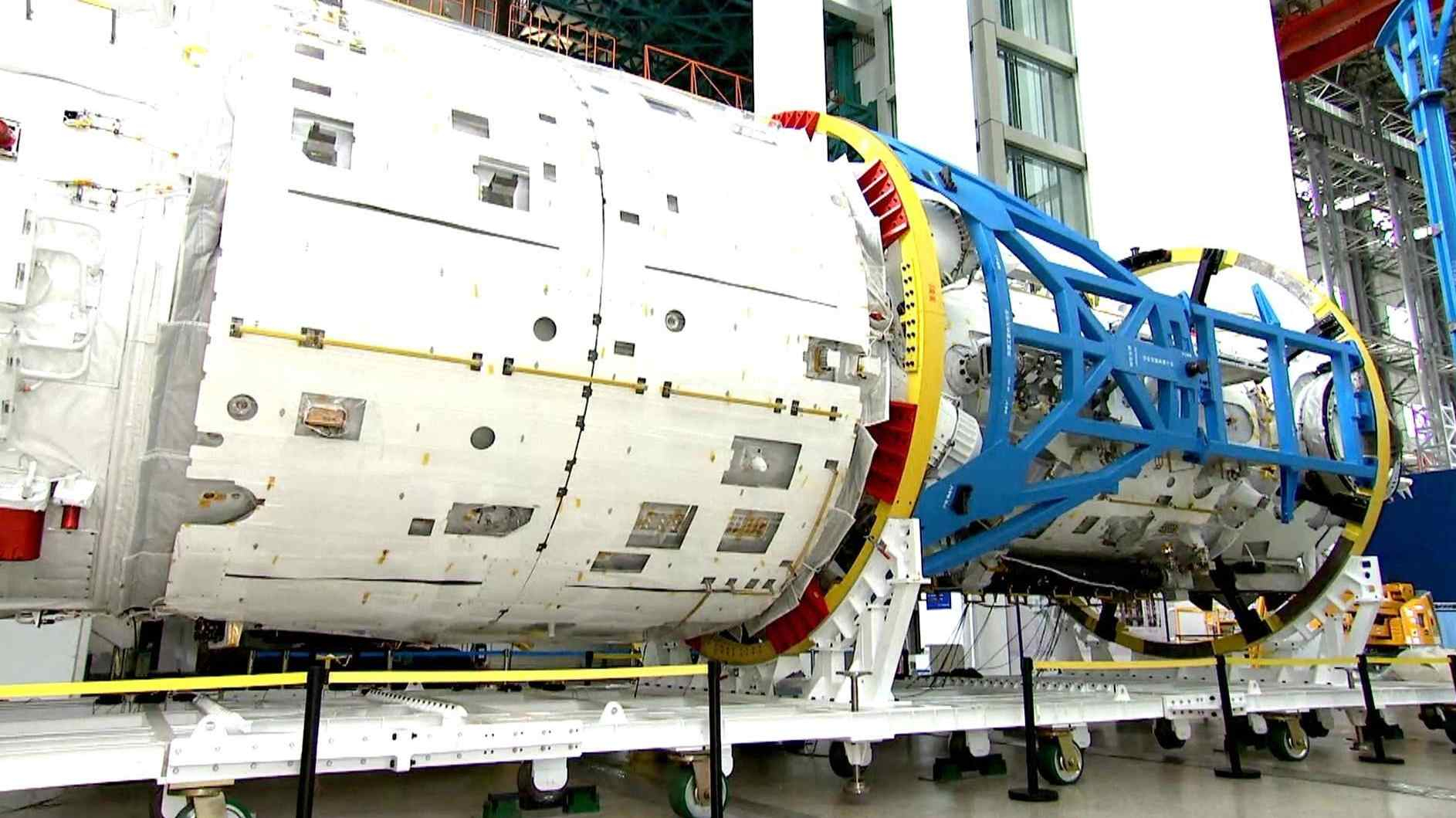

Editor's Note: Tom Fowdy is a British political and international relations analyst and a graduate of Durham and Oxford universities. He writes on topics pertaining to China, the DPRK, Britain, and the United States. The article reflects the author's opinions, and not necessarily those of CGTN.
Chinese authorities announced on Saturday that the space laboratory, Tiangong-2 (Heaven's Palace) would be decommissioned and prepared for atmospheric re-entry. For most audiences, this, of course, was not an eye-catching announcement. However, what may seem a simple procedure is all part of a much larger and more exciting picture.
Without a doubt, China's very own space program is going places. For those mystified by the cosmos, this is all worth paying attention to. While our energies are often focused on the activities and achievements of America's NASA, China's very own National Space Administration (CNSA) is very much holding its own and breaking scientific ground at an unbelievable pace. As the U.S. attempts to hold its own, there is very much talk of the "space race" being back.
Outer space is a concept filled with mystery, excitement and awe. Once confined to planet Earth, in the 20th century, humanity made rapid advances in technology, which allowed them to get closer to the stars than ever before.
Humankind would learn to enter space itself, launch orbital vehicles such as satellites and most famously, even walk upon the surface of the moon. The competitive struggle between the United States and the Soviet Union proved pivotal in propelling these scientific advances forward; thus in the late 1950s, what was coined as "the Space Age" had begun.
And it is, of course, by no means over yet. The importance of outer space extends far beyond a contest of ideologies, political systems and national prestige, for rather it is a subject which is intrinsic to humanity's own future.

Yang Liwei, the first Chinese in space, sits in the spaceship Shenzhou-5's re-entry module. /VCG Photo
As problems on earth intensify such as environmental degradation, overpopulation, acquisition of natural resources and so on, some of the most forward-thinking scientists envision that our only answer may be to go upwards and out into the cosmos; once an unrealistic trope of science fiction.
Ideas such as space colonization and industrialization are no longer mere fantasies, but increasingly the long term aspirations of governments.
Where does China come into it? Since the end of the Cold War, there has been a tendency for the world of space interest and observation to orbit around NASA, with America having achieved undisputed dominance in the field of aeronautical and space engineering.
Yet, for the first time since the 1960s, that supremacy is being challenged explicitly. That challenge became known to the world in the name of "Change-4" – the Chinese lunar rover program which became the first to land on the "dark side of the moon" – a historic breakthrough.
Now, both Washington and Beijing have it in their sights to explore long-term plans of building the first-ever lunar base.
The Tiangong program has similarly seen China make a rapid catch up to the United States in space station technology and capability. The recently decommissioned Tiangong-2 and its predecessor, Tiangong-2, were not mundane satellites, but experimental hubs as part of the 27 years "921-2" program in preparation for the construction of an orbital space station which will commence next year.

Tianhe-1, the main control cabin of China's space station, is unveiled at Tianjin Aerospace Town in north China, March 31, 2018. /CGTN Photo
The new station will give China its own alternative to the International Space Station, whereby astronauts can conduct experiments.
Then, there is the topic of Mars. Although the United States has held a decade's head start in reaching the Red Planet, Beijing is once again catching up. Following the success of the lunar mission, Wu Yanhua, director of the CNSA, stated: "China's first Mars exploration mission will be implemented around 2020."
The goal will be unprecedented, with a rover aiming to scoop up samples of Martian soil and bring it back to earth for the first time, giving a first-hand assessment as to whether there was ever life on the distant world.
Given all of this, if the topic of outer space mystifies you, there is plenty to be excited about in the coming years, however from a very new focus and perspective.
While NASA will undoubtedly continue to impress global audiences and make astonishing advances, there is now another rapidly growing sphere of outer-space achievements and contributions, that is China.
Hold on tight, because as Washington responds, the lift of a new exciting space race is now emerging!
(If you want to contribute and have specific expertise, please contact us at opinions@cgtn.com.)

Copyright © 2018 CGTN. Beijing ICP prepared NO.16065310-3
Copyright © 2018 CGTN. Beijing ICP prepared NO.16065310-3